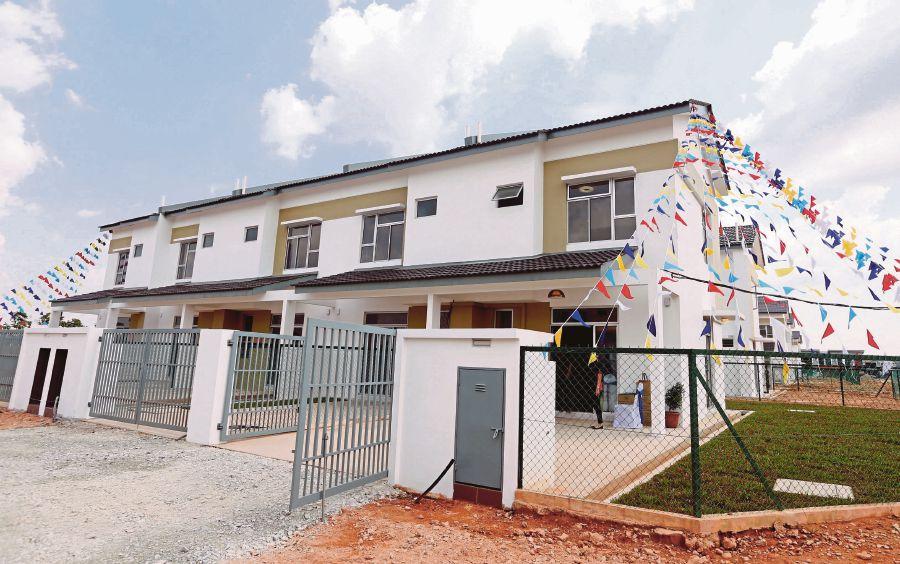The theme of this year's World Habitat Day (WHD) celebrated recently is "Housing Policies: Affordable Homesâ€. The objective - to reflect on the state of our towns and cities, and the basic right of all people to have adequate shelter.
Since a decade ago, housing has become unaffordable for the majority of the people living in developing countries. More than 1.6 billion people all over the globe face the problem of inadequate housing, as a result of which at least one billion are forced to live in slums and "informal settlementsâ€.
Paul Collier, Professor of Economics at Oxford University, stated that a national housing policy needs to be proactive rather than reactive. One proactive housing policy attempted by many cities is to launch large-scale public housing projects. Unfortunately, these projects are at times located in "undesirable far-flung locationsâ€, or on a scale that simply exceeds demand. As a more cost-effective alternative, he suggested the authorities provide the core infrastructure required for a new neighbourhood to be constructed in the future. It is relatively cheaper for the authorities to build arterial road structures on the rural-urban fringe in advance of settlement, around which private development can later take place.
A year ago the United Nations Conference on Housing and Sustainable Urban Development (Habitat III) convened in Quito, Ecuador. The participants (government leaders, civil society, professionals and relevant stakeholders) brainstormed, deliberated and adopted the New Urban Agenda (the Agenda).
Under the Agenda, housing policies must take centre stage in the formulation and execution of national urban policies, coupled with national strategies to fight urban poverty, improve health and employment.
It is estimated that by 2050, the current world 7.6 billion population will double in size, making urbanisation this century's most "transformative trendâ€, posing massive sustainability challenges in terms of housing, infrastructure, basic services, food security, health, education, employment opportunities and public safety.
Ever since Habitat I (Vancouver, 1976) and Habitat II (Istanbul, 1996) there had been improvements in the quality of life of millions of urban inhabitants, including slum and informal settlement dwellers. However, persistent poverty, growing inequalities and environmental degradation remain major obstacles to sustainable development. The Agenda is formulated to address these issues, becoming the first of many other steps in achieving the 2030 Agenda for Sustainable Development (ASD 2030).
The Agenda's vision is that all cities and human settlements will fulfil their social function, will be participatory and promote civic engagement, achieve gender equality, meet the challenges and opportunities of the present and future, promote responsive planning of safe and accessible urban mobility, adopt and implement disaster risk reduction and management, and protect ecosystems. To achieve these goals, cities must be guided by the following three principles:
(a) Leave no one behind, by ending poverty in all its forms and dimensions;
(b) Sustainable and inclusive urban economies; and
(c) Environmental sustainability, by promoting clean energy and sustainable use of land and resources.
On Oct 24, Urban Wellbeing, Housing and Local Government Minister Tan Sri Noh Omar launched a 66-page document titled "New Urban Agendaâ€, which will "define the country's development direction and sustainable urbanisation for the next 20 yearsâ€.
The document states that we must be ready to develop "policies, tools, mechanisms and financing models†that can promote a wider range of affordable housing options, including rental and other tenure options. We must also offer "cooperative solutions†such as co-housing, community land trusts and other forms of collective tenure. There must also be initiatives and governmental support for incremental housing and self-build schemes, with special attention to concrete plans to upgrade slums and informal settlements. In simple language, it is time to be innovative in formulating and executing future national housing strategies.
I am familiar with rental housing, but not "cooperative solutions†such as co-housing, until I read the story of an innovative cooperative rental housing for youths in Göteborg, Sweden.
As for community land trust (CLT), it is basically a nonprofit corporation that develops affordable housing, civic buildings and other community assets on behalf of a community. Such an initiative seeks to balance the needs of an individual and community's need to maintain affordability, economic diversity and local access to essential services.
The CLT experiment began in the United States and over the last four decades had spread to Canada and the United Kingdom.
A successful CLT experiment took place in East London recently. After a decade of campaigning, the East London Community Land Trust has successfully created a housing scheme for residents where the prices will be linked to local income in perpetuity, completely detached from the "superheated speculation of the property marketâ€.
In 2010, there were only 36 community land trusts in England and Wales; now there are 225 such entities, with 700 homes built to date and a further 3,000 in the pipeline to be completed by 2020.
In Australia, innovative solutions in resolving the affordable housing crisis are described in a 102-page report titled, "Government led innovations in affordable housing deliveryâ€. These include, among others:
Transfer programmes of land titles from the government to community housing providers (CHP);
Low deposit home loans;
Shared equity and ownership, where a purchaser enters into an agreement and share the cost of purchasing that property and the ownership with a state or territory government;
A land rent scheme, where eligible households can rent a residential block of previously unavailable land from the government on which they can build a house; and
Partnerships and joint ventures (by the government and the community housing provider or private sector)
A study of these housing options in foreign jurisdictions may offer some good ideas for us to pursue and execute the Agenda in the coming years.
The writer of this article formerly served the Attorney-General's Chambers before he left for practice, the corporate sector and, then, the academia
.jpeg)









.jpeg)
